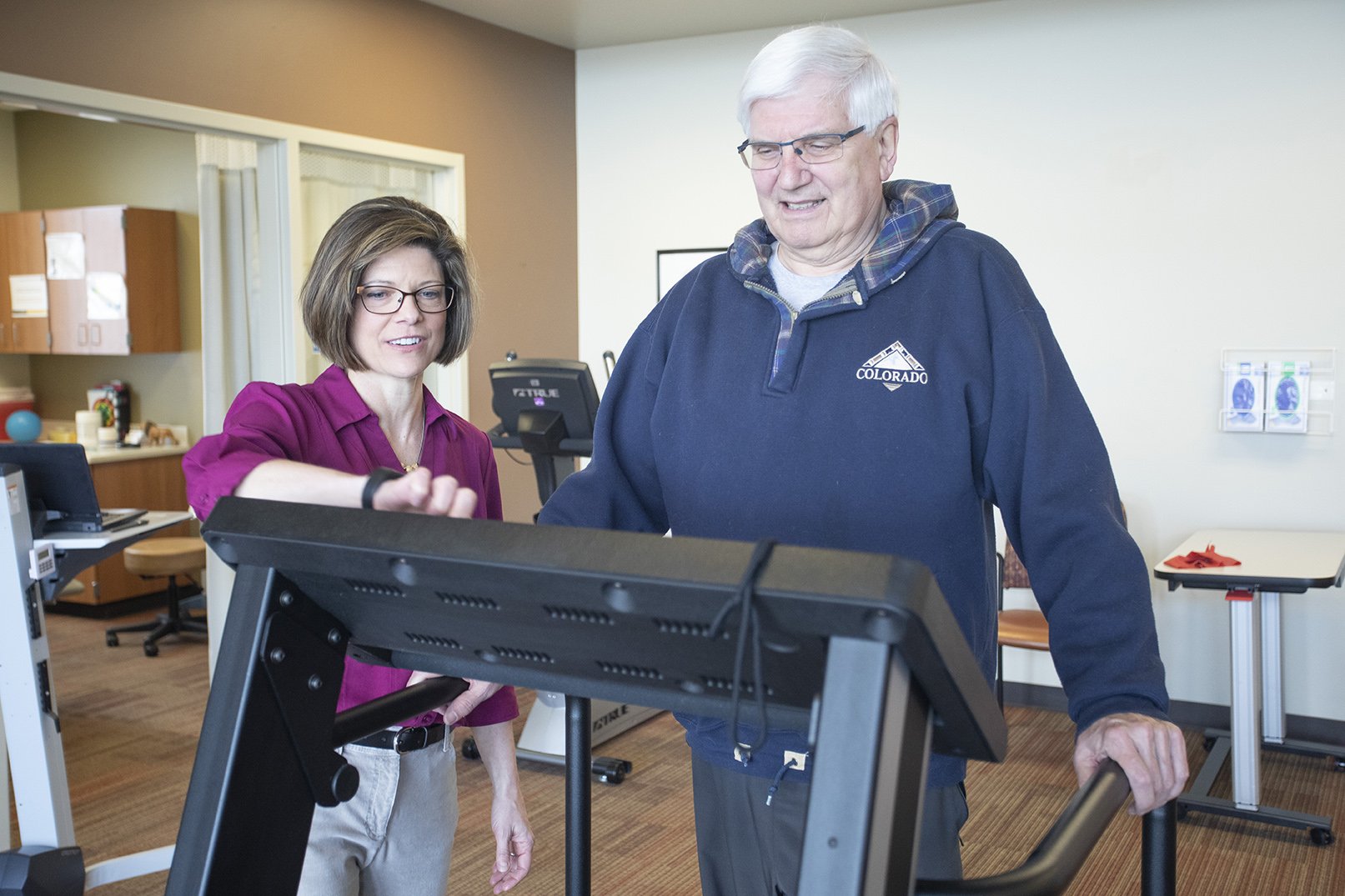
Thanks to a Pain University course he took last fall, Rick Koester learned that he can be active, despite chronic pain. The six-week course – taught by LMH Health physical therapist Debbie Rico – is designed to help people with chronic pain. Photo by Mike Yoder/LMH Health.
Program helps those living with chronic pain
By Jessica Brewer, LMH Health
Even though no one wants to experience pain, it is an essential part of life, according to LMH Health physical therapist Debbie Rico.
“People have the perception that pain is bad,” Rico said. “You have to have some sort of pain to survive. People want all pain to be gone and, actually, that would not be healthy.”
Pain helps keep us safe – such as when we accidentally touch a hot burner on a stovetop. Pain tells us to pull away from the danger.
Although short-term pain can be a lifesaver, chronic pain can feel more like a life sentence. But there are ways to find relief.
Pain University is an LMH Health program that was developed to help people living with chronic pain. The six-week course has several goals, including to help people experiencing chronic pain:
- Learn more about pain
- Determine the best strategies for them to reduce pain
- Learn how to move to reduce pain
“We want the Pain University classes to help people realize why they have pain, and what exercises and activities they can do outside of class to improve their condition,” Rico said.
The goal is for people with chronic pain to develop strategies and realize that often – with proper exercises and techniques – they can resume activities they enjoy.
Chronic pain can affect people’s everyday lives – whether it’s walking around a grocery store or undertaking intensive outdoor activities.
Rick Koester, who was raised in Colorado, knows about that first-hand. He’s always enjoyed hiking, walking and being outdoors. However, chronic hip and sciatica pain kept him from exercising because he was afraid his pain would increase.
When Koester attended the Pain University classes last fall, he learned it’s important to move in spite of his pain. Immobility can exacerbate health problems.
“I thought: If you are in pain, not moving will make it better,” Koester said. “The part of the class when we learned to understand pain had the biggest impact.”
He enjoyed the exercises, including ones that focused on mobility, breathing and meditating.
“Debbie taught us that moving around is important even while we are experiencing chronic pain,” Koester said. “If you convince yourself that not moving is helping your pain, it will only get worse. By gradually exercising little by little each time, you are releasing some pain and eventually it gets better.”
Koester no longer lets pain get in the way of his mobility.
“Debbie is a great instructor,” Koester said. “She won’t admit how good she is, but she has taught me so much and truly changed the way I view pain.”
Jessica Brewer is an intern in the Marketing and Communications Department at LMH Health.
About Pain University
• This six-week program will be 2:30-4:30 p.m. Mondays, March 18 to April 22, at the LMH Health Maine Street campus. The fee is $150.
• To participate, you must be able to walk at least a quarter-mile with little to no assistance.
• For more details or to enroll, please visit www.lmh.org/pain-university.